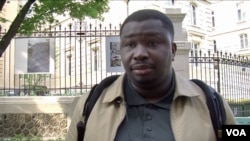President Emmanuel Macron was named the winner of France’s runoff election against far-right rival Marine Le Pen on Sunday.
The two candidates held sharply different views, not only on domestic issues, but also on France’s role in Europe, NATO and the rest of the world.
During his acceptance speech, Macron said, "Many in this country voted for me not because they support my ideas but to keep out those of the far-right. I want to thank them and know I owe them a debt in the years to come.”
With 97% of votes counted, Macron was on course for a solid 57.4% of the vote, interior ministry figures showed, Reuters reported.
U.S. President Joe Biden tweeted congratulations to Macron, saying he looked forward to “continued close cooperation” with the French leader.
Other European leaders sent good wishes, too, including Ukrainian President Volodymyr Zelenskyy who tweeted in French, saying, “I’m convinced that we will advance together toward new joint victories. Toward a strong and united Europe!”
Sunday’s presidential election runoff may have been decided in towns like Pantin, which didn’t vote for either Macron or Le Pen in the first round. Nearly six in 10 voters instead backed far-left candidate Jean-Luc Melenchon, who didn’t endorse either finalist for this second round, although he told supporters not to vote for Le Pen.
“I think we have to save the country, so I went for Macron,” said 38-year-old marketing consultant Fatime.
Like many French, she was underwhelmed by the two finalists.
“I’m not especially happy about Macron and not so happy about Le Pen… if Marine do[es] pass, I’m scared it’s going to cause a civil war or something like that,” she said.
This was the second presidential runoff pitting Macron against Le Pen. But when he ran against the far-right candidate five years ago, Macron was a newcomer who promised change. Now, he’s a known quantity who has received mixed reviews from the electorate over his handling of issues like the environment and the economy.
Pantin resident Emmanuel Codjia says he voted for Le Pen. He says there are fundamental things he believes in — like French culture and heritage and the country’s future. Codjia says this is the first time he has voted far-right, and he doesn’t agree with all of Le Pen’s platform. He also says he doesn’t think she’ll be elected. It’s more a vote, he says, to make a point.
Codjia says since his family, coming from West Africa, fought hard to become French, he believes it’s important to vote rather than abstain.
This was Le Pen’s third presidential bid. She had softened her image, emphasizing cost-of-living issues and walking back on previous positions like a call to ban Muslim headscarves from public spaces.
Le Pen and Macron offered sharply different positions on domestic and foreign policy during their only debate last Wednesday. Le Pen wants to move away from renewable energy and reduce France’s participation in bodies like the European Union and NATO.
“I voted for our actual president, Mr. Macron,” said retiree Benedicte Tardivo. She said she was afraid of a Le Pen presidency, and she's positive about Macron.
Pantin resident Jean-Emmanuel Sanchez said, “I’m not an expert, but in several aims he did a very good job for France having an important place in the world, among Europe. Our voice is listened to all over the world. And for France he has to do more than he did during five years. For all difference and inequalities between people… but… I’m confident he could improve and go further in his job he did until now."
He won’t say whom he voted for — only that he made what he called a "strategic” choice. He describes Macron’s term in office, marked by crises like the yellow vest protests over economic issues, as a very violent period. He says Le Pen represents a danger. He feels he hadn't been given much choice.
So, this election’s winner faces a tough road ahead. Even before the votes are counted, many French were already disappointed in the outcome.







